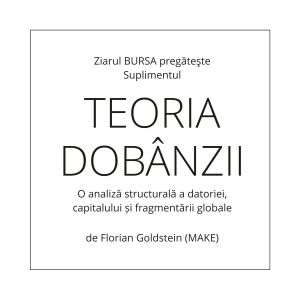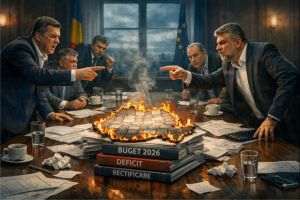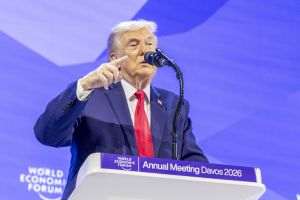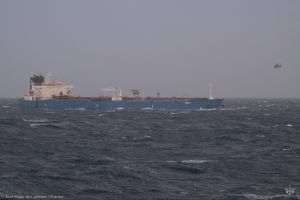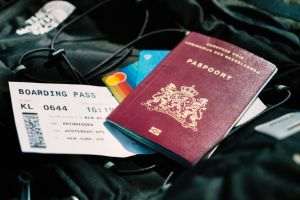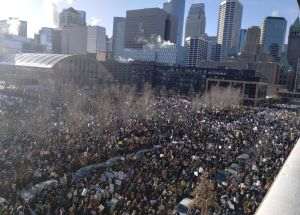The advisers of Donald Trump, the president-elect of the USA after the election of November 5, revealed to the American publication The Wall Street Journal, the plan of the future Presidential Administration from the White House for the resolution of the conflict in Ukraine. Those advisers told the quoted source that this plan envisages the creation of a demilitarized zone on the front line, but also the postponement of Ukraine's accession to NATO for the next 20 years, proposals which, although in contrast to the Kremlin's demands, could represent a major change in the United States' handling of the conflict in Ukraine.
The Trump team's plan calls for the creation of an extensive demilitarized zone that would stretch 1,287 kilometers along the front line and maintain Russian control over strategic territories in Donetsk, Luhansk, Zaporozhye and Kherson regions, but not mention who will handle the security management of this area. However, it appears that US forces and UN peacekeepers will not be involved in this mission.
One of Trump's advisers, however, clarified for the quoted source: "We are not sending American soldiers to keep the peace in Ukraine. And we don't pay for it. Let the Poles, the Germans, the British and the French do it, to whom we will ask this".
This proposal to create a demilitarized zone is a tactical solution that Trump's team believes is effective in addressing the immediate risks of conflict and providing a framework for peace.
Another central point of the plan is to delay Ukraine's accession to NATO for a period of 20 years. This is a significant concession that the United States could demand from Ukraine in order to resolve the conflict. The plan proposes that, in exchange for delaying accession, the United States would continue to provide Ukraine with military assistance by providing equipment and weapons, thus maintaining its defense capability. One of the advisers cited by the quoted source said the United States was prepared to provide military training and other forms of support, but the main participation in peacekeeping operations would fall to Europe.
The Wall Street Journal points out that this plan is similar to the one that Vice President-elect J.D. Vance, described it in September. He argued that Trump would invite Russia, Ukraine and the European Union to agree on a peaceful settlement, while Russia would retain control of part of Ukrainian territories.
• European objections to the new conditions
From the perspective of the Trump administration, the temporary abandonment of NATO integration could contribute to a de-escalation of relations with Russia, given that the expansion of the alliance near the Russian borders has been a sensitive factor in Russian-Ukrainian relations and contributed to the escalation of the conflict. However, this proposal could be perceived as a surrender of important strategic aspirations for Ukraine and could cause resentment among the US's European allies, who see the region's security as closely tied to Ukraine's integrity.
This proposed plan represents a change in direction from the Trump team's previous discussions regarding the conflict in Ukraine. In the past, the advocated strategy was to condition military support to Ukraine on accepting direct negotiations with Moscow. This meant that the United States could have stopped military aid until peace talks between Kiev and the Kremlin began. But with the new plan, Trump appears to have taken a step toward a solution that involves continued support for Ukraine's security, even if it means abandoning NATO's long-term aspirations.
Despite efforts to find a viable solution, the quoted source says both proposed plans present risks and challenges. First, the Kremlin has already set its own terms for peace, demanding the withdrawal of Ukrainian armed forces from the entire territory of Donetsk, Luhansk, Zaporozhye and Kherson regions, which would entail territorial concessions from Ukraine. Second, the Trump team's plan could face opposition from some NATO members, particularly those who see the conflict in Ukraine as a threat to their own security and who oppose any concessions that could diminish the alliance's influence. in the region. The European states in the vicinity of Ukraine, especially those in the East, have constantly expressed concerns about the security of the region and the risks of a solution that would involve territorial concessions or giving up NATO membership.
• NATO without Ukraine, the only guarantee accepted by Moscow
Regarding that plan, Dmitri Trenin, scientific director of the Institute of Economy and Strategy World Military, from the Faculty of Economics of the National Research University of Russia, points out in an opinion published by the Russian daily Kommersant that Donald Trump is known for his firm position on the danger of a Third World War and his promise to end the conflict from Ukraine in 24 hours.
"The idea that a complex and deep war like the one in Ukraine could be resolved one day raises questions. Ending a war is not just about stopping hostilities in the short term, but also about addressing the root causes that led to that conflict. If Trump were to propose a cessation of military operations only along the current line of contact, Moscow might not view this solution as serious. Such a pause could only delay the conflict, which could flare up again with even greater intensity. Especially for Russia, Ukraine's political status, its military potential and its geopolitical alignment matter. The new territorial realities arising from the conflict must also be taken into account. (...) It is unlikely that a Trump administration will engage in a substantial dialogue with Russia on these issues or be willing to take into account Moscow's fundamental interests", Dmitri Trenin claims in the opinion published by the quoted source.
The Russian expert claims that, even if the Kremlin were willing to dialogue, reaching an agreement would be extremely difficult, especially since an essential aspect is that of guarantees in view of the lack of mutual trust between the parties, which makes any agreement vulnerable from the start peace agreement In this regard, Dmitri Trenin recalls the Minsk agreements of 2014 and 2015 that failed to stop hostilities, as well as a similar attempt initialed in Istanbul in 2022 that was also thwarted. The Russian expert concludes that the only guarantee that Moscow sees as reliable is a guarantee for itself, and that would be equivalent to Ukraine not joining NATO.

